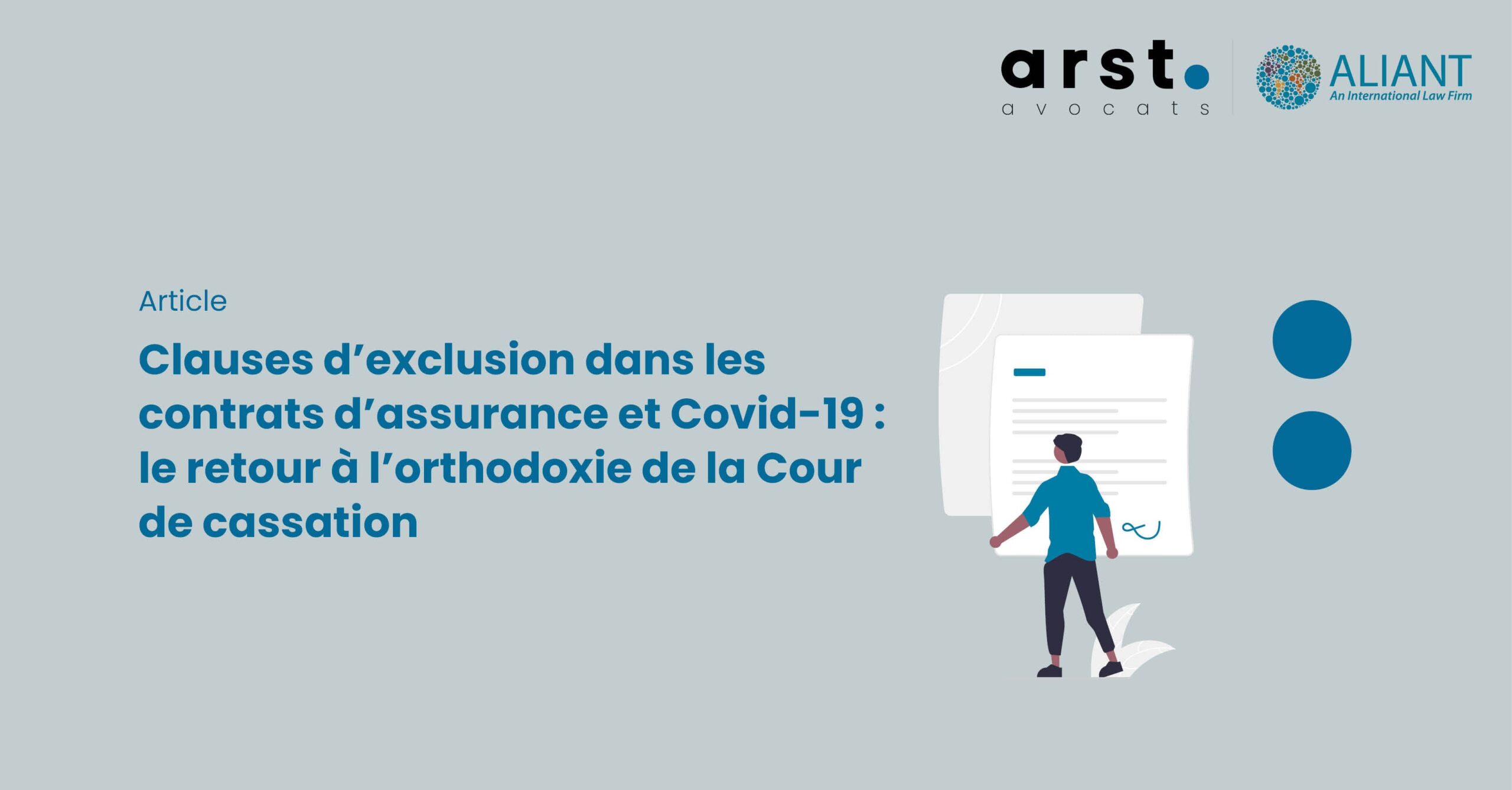
For nearly two years, the Court of Cassation has continued to toughen its tone against insurers in its fight against exclusion clauses deemed too broad or not clear enough, in particular under the first paragraph of Article L. 113-1 of the insurance code according to which “losses and damage caused by fortuitous events or caused by the fault of the insured are the responsibility of the insurer, unless there is a formal and limited exclusion contained in the policy […] » .
In this context, the High Court had the opportunity to point out that the mere fact of having to interpret an exclusion clause deprived it of the formal and limited nature required by the insurance code ( Cass. civ. 2 e , November 26, 2020, appeal no. 19-16.435 ).
More recently, the Court of Cassation established the principle according to which the fact that only part of an exclusion clause is neither formal nor limited, exposed the clause as a whole to unenforceability , even though this party would not be affected by the claim in dispute ( Cass. civ. 2nd , June 17, 2021, appeal no. 19-24.467 ) .
It is then on the basis of the second paragraph of article L.113-1 of the insurance code, according to which "the insurer is not liable for losses and damages resulting from an intentional or fraudulent fault" , that the Court of Cassation acted, by defining the fraudulent fault as a " deliberate act of the insured committed with the awareness of the inescapable nature of its harmful consequences " and by requiring proof of this awareness from the insurer (Cass. civ. 2 e , January 20, 2022, appeal no. 20-13.245).
In such a context, some observers had few doubts as to the outcome of the dispute between insurers and their policyholders in the context of the assumption of operating losses resulting from the administrative closures of 2020 and 2021 linked to the fight against the Covid-19 epidemic.
As part of this, these policyholders (mostly restaurateurs) benefited from an "operating loss" guarantee applicable in the event of "administrative closure" linked to an "epidemic", which however excluded " losses of operation, when, on the date of the closure decision, at least one other establishment, whatever its nature and activity, is subject, on the same departmental territory as that of the insured establishment, to a measure of administrative closure, for the same reason ".
Under the terms of four judgments delivered on December 1, 2022 (appeals n°21-19.341, 21-19.342, 21-19.343 and 21-15.392), the second civil chamber has just confirmed the opposability of this exclusion of guarantee on the grounds that it is sufficiently clear and limited.
The criticisms made of this clause were nevertheless numerous, in particular that relating to the fact that the term "epidemic" was not defined by the contract, thus making it necessary to interpret the said clause, which, in application of the case law of the Court of cassation, rendered it unenforceable with regard to the requirements of the aforementioned article L.113-1.
By first deciding that the term “epidemic” was in itself sufficiently explicit and therefore did not need to be defined further, the High Jurisdiction seems to set a limit to the requirement of clarity imposed on the insurer, which until now promised to be of an indefinitely inflationary nature.
Similarly, judging that the exclusion of operating losses due to the administrative closure of at least one other establishment located in the same department (which, in the case of the Covid-19 epidemic, was systematic ) did not empty the guarantee of its substance, the Court of Cassation seems to have returned to more orthodoxy by recognizing the insurer's right to freely set the scope of its guarantees, as soon as an insurable risk remains, which was indeed the case here since the guarantee of operating losses was intended primarily to cover the insured in the event of contamination limited to his own establishment.

Jefferson Larue
author
associate lawyer

Lily Ravon
author
lawyer
Repetition of old-age benefits obtained by fraud
Court of Cassation, Plenary Assembly, May 17...
Biennial prescription: the Court of Cassation finally sets limits in favor of insurers
The obligation to inform insurers about the causes of interruption of the two-year prescription does not require mentioning the entire article 2243 of the Civil Code according to which the interruption does not take place when the claimant give up, leave...
Interview with Romain Picard, young partner of the firm Arst Avocats specialized in Corporate / M&A
Today we welcome Romain Picard, a young partner from Arst Avocats, who tells us about the reasons that led him to join the firm and talks to us about the projects that drive him with regard to the development of the practice of Corporate / M&A in this office...
Repetition of old-age benefits obtained by fraud
Court of Cassation, Plenary Assembly, May 17...
Biennial prescription: the Court of Cassation finally sets limits in favor of insurers
The obligation to inform insurers about the causes of interruption of the two-year prescription does not require mentioning the entire article 2243 of the Civil Code according to which the interruption does not take place when the claimant give up, leave...
Interview with Romain Picard, young partner of the firm Arst Avocats specialized in Corporate / M&A
Today we welcome Romain Picard, a young partner from Arst Avocats, who tells us about the reasons that led him to join the firm and talks to us about the projects that drive him with regard to the development of the practice of Corporate / M&A in this office...